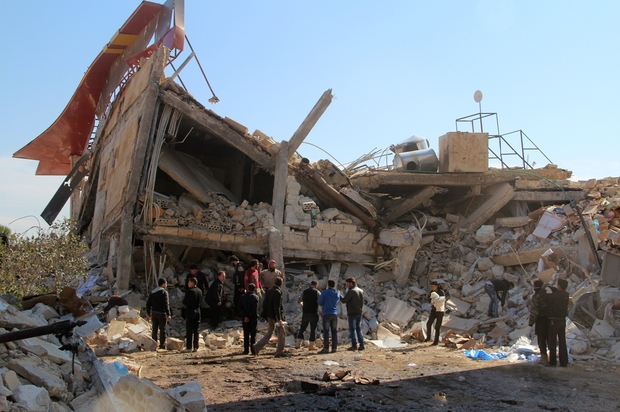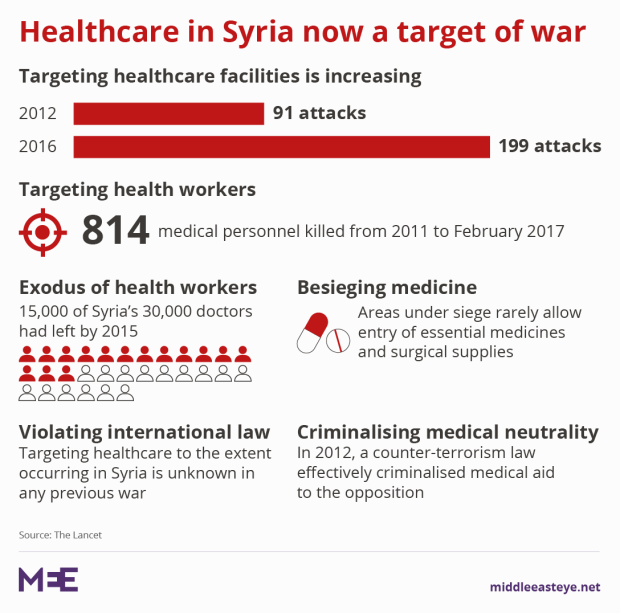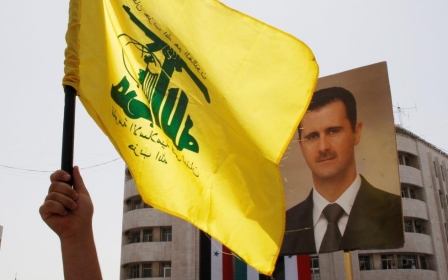More than 800 healthcare workers killed in Syria war: Report

More than 800 health workers in Syria have been killed in deliberate attacks since 2011, researchers from a host of different academic and medical organisations said on Wednesday.
Most of the targeted attacks have come from the Syrian government and Russia, turning the violent withholding of healthcare into a weapon of war, according to an analysis published in The Lancet medical journal.
This "weaponisation" of healthcare, it said, "has translated into hundreds of health workers killed, hundreds more incarcerated or tortured and hundreds of health facilities deliberately and systematically attacked."
In the crosshairs, an estimated 15,000 doctors - about half the pre-war number - fled the country, leaving hundreds of thousands of civilians without access to basic care."The international community has left these violations of international humanitarian and human rights law largely unanswered," the authors of the report said.
Experts from universities in Lebanon, Britain and the United States, as well as the Syrian American Medical Society (SAMS) and Multi-Aid Programs compiled the report.
'Grievous failings'
The data they gathered showed that 782 health workers were killed from March 2011 to September last year.
Of the total, 247 (32 percent) were doctors, 176 (23 percent) nurses and 146 (19 percent) medics, according to Physicians for Human Rights, a nonprofit group.
The rest included pharmacists, medical students, ambulance workers and veterinarians who were added to the list because they were killed while treating people.
Shelling and bombing of hospitals and clinics accounted for 55 percent of deaths, the report said. Shootings of medical professionals followed with 23 percent, torture with 13 percent and executions with 8 percent.
Since September 2016, at least 32 more lost their lives, "which brings the total number of health workers killed in acts of war crimes over the six years of the conflict to 814," the study said. This was probably a gross underestimate, it added.
The evidence suggested that the Syrian government targeted medics as a strategy to an extent never before seen in war, the researchers said.
The majority of the attacks on health facilities, 94 percent, were the work of "the Syrian government and its allies, including Russia".
"With the military surge that began in late September 2015, when Russia joined Syrian government forces, 2016 marked the worst year of the conflict to date in terms of attacks on medical facilities," the study said.
The SAMS reported 194 verified attacks last year, an 89-percent increase from 2015.
Almost a third of Syrians now live in areas with no health workers whatsoever, and another third are in areas with insufficient care, the report said. Nearly half of hospitals were reported damaged.
The Lancet, in an editorial, pointed to "grievous failings by the global health community and international governance".
It called on the World Health Organisation to raise funds to prop up the health infrastructure and health workers in Syria, and to mobilise international support to resolve the humanitarian crisis.
"An entire region and its people have been decimated while the world has watched," the journal said. "Health and development will take decades to catch up."
The Britain-based Syrian Observatory for Human Rights says it has recorded the deaths of 321,358 people since the conflict began with anti-government protests in March 2011.
Those killed included 96,000 civilians, of which over 17,000 were children, the monitor said.
Meanwhile, also on Tuesday, the UN independent International Commission of Inquiry on Syria said that Syria's air force "purposely targeted" a spring outside Damascus in December, cutting off water supplies for 5.5 million people living in and around the city.
Contrary to the Syrian government claims that the spring was contaminated and compromised by armed rebel groups, the commission said it had found no evidence of deliberate contamination of the water supply or demolition.
This article is available in French on Middle East Eye French edition.
New MEE newsletter: Jerusalem Dispatch
Sign up to get the latest insights and analysis on Israel-Palestine, alongside Turkey Unpacked and other MEE newsletters
Middle East Eye delivers independent and unrivalled coverage and analysis of the Middle East, North Africa and beyond. To learn more about republishing this content and the associated fees, please fill out this form. More about MEE can be found here.





